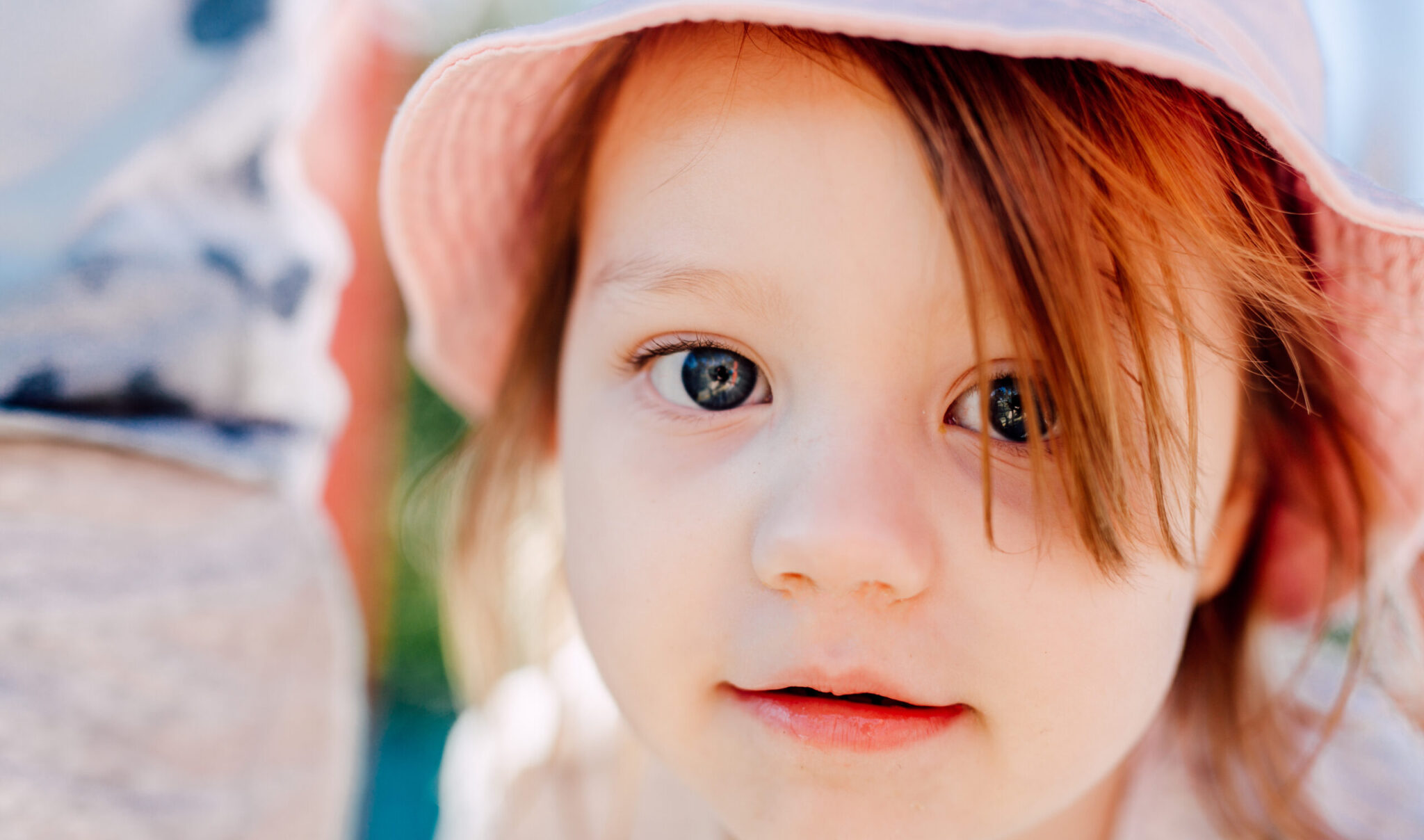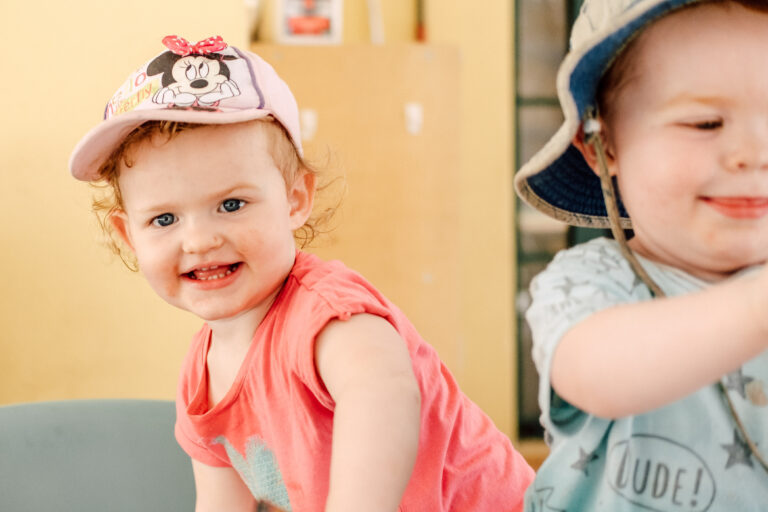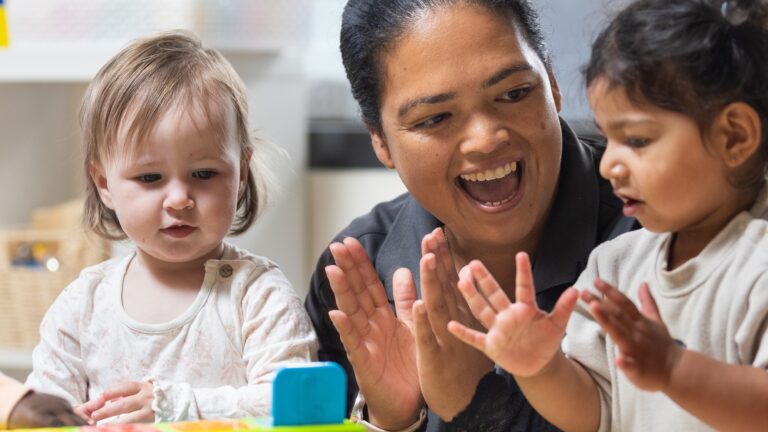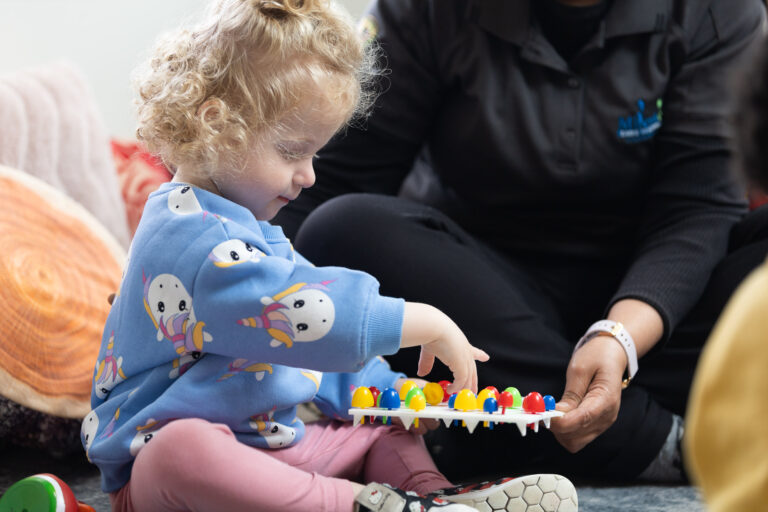
Separation anxiety is common in young children, it occurs when children are feeling nervous about being away from their parents or carers. Read this article as we unpack what separation anxiety may look like for them, and how you can help them develop self-regulation.
Separation anxiety commonly occurs in young children when they are nervous about being away from their parents and carers. Separation anxiety can commonly occur when children are around six months, reaching its peak at about 14 – 18 months. Families’ and educators’ intentional support is important, especially during this time, to ensure children can overcome this challenge to become stronger and more independent individuals.
Being completely connected to your child’s emotions is the first step to knowing how to best support them in self-regulating. Separation anxiety can look different for children; while some might cry and verbally express this to you, others might hold your hand a bit tighter, knowing you are about to leave; they might even refuse to enter a room knowing it means it’s time to say goodbye for the day. Knowing how to respond to support your child’s emotions is important. If you show your confidence during drop-offs, you are role-modelling how to respond to the transition, which helps to provide reassurance, and for your child to learn how to regulate their emotions from you. Learning to manage change in the environment is an important living skill, so it is crucial to see this as a learning opportunity and to support your child to regulate their emotions intentionally and confidently.
Our Lifelong Learning Early Experiences Curriculum emphasises promoting children’s emotional confidence, so children can be supported to be resilient individuals. Our curriculum is inspired by the Abecedarian approach, one of our teaching components directly promotes enriched caregiving, so our educators are valuing daily care moments as opportunities for children to learn some lifelong skills, such as emotion regulation during moments of separation anxiety.

5 tips on how you can also support your child through separation anxiety:
Tip 1: Talk through the emotions, and always say bye!
Anxiety can build up when the separation is about to occur, so keeping this routine short and positive is important to give your child a sense of reassurance and comfort. It is also helpful to guide your child to process their emotions by labelling and talking through what’s happening, such as by saying, ‘I know you are feeling sad. I will miss you today too. How about we give your (Educator) a cuddle, and I will see you this afternoon!’
Tip 2: Settle your child in an activity, and ideally with their room’s educator
Your children’s educators are ready to greet all our children in the morning, even if they are sitting and playing with other children (they may be helping them settle in, too!). Settle your child in an activity with an educator is a great way to help your child’s emotions during this transition, as your educator will provide comfort and support them to self-regulate through play.

Tip 3: Share your child’s routine and comforter details with their educator(s)
Little details matter to our children, such as how they prefer to be comforted when upset, how they sleep, how they prefer to have their nappies changed and their latest interests. Your early childhood educators love knowing more about your child’s routine and comforters as it helps your little one settle and feel relaxed in the environment. Spare some time to speak with your child’s educators, get to know them and tell them about your child’s home routine.
Tip 4: Let your child bring a comforter if they have one
Being in a classroom is very different to being at home! While we try to make the learning environment reflective of the cosy atmosphere that children get, sometimes children prefer to bring comforters in from home to get that extra sense of belonging, whether it is a special blanket or teddy - please let your child bring it in if they have one and advise your child’s educator. Once your child is settled and ready, they will be encouraged to keep this in their bags during the day.
Tip 5: Support your child’s play and independence outside the centre
Being exposed to many other children can be overwhelming to some children, especially if they are not used to it. Supporting your child’s social and emotional development by exposing them to playgroups and playgrounds outside the centre can help them learn to be brave and play with others.

Whether your child is transitioning into an early childhood setting or transitioning from Nursery to a Toddler room, separation anxiety can occur, but with intentional guidance from parents, carers and educators, they become great opportunities to teach children to develop emotional confidence and social well-being.
